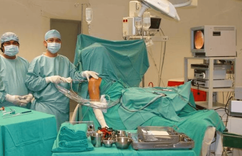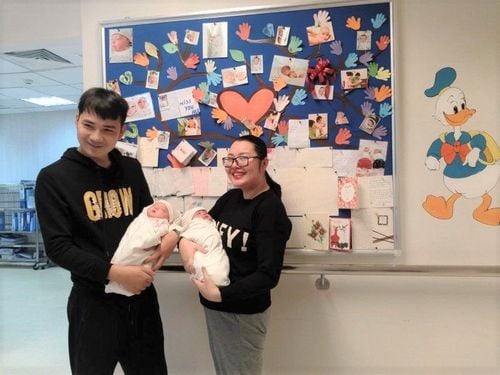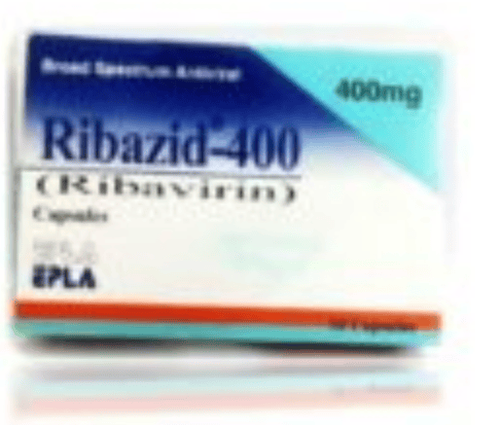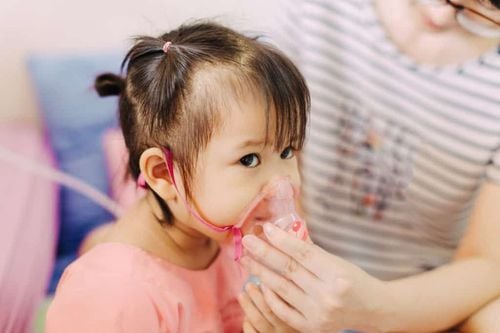Vu Duc Bao (in Yen Bai) was born prematurely at 34 weeks, had a cleft palate, and was infected with the respiratory syncytial virus (RSV), which resulted in serious respiratory and heart failure. The flurry of events that begin at birth can make a baby's life appear very challenging at times. After two weeks of illness, the infant was discharged on January 31, 2015, thanks to the combined efforts of doctors and nurses at Vinmec International General Hospital's Department of Neonatology.
Nguyen Thi Anh was highly concerned when Bao was delivered prematurely at 34 weeks, weighing only 2.85kg, with a cleft palate, after having a child through assisted reproduction in middle age. Special attention is devoted to the child. However, the baby developed cough, wheezing, runny nose, several blue episodes, and difficulties breathing two weeks after delivery. The baby, in particular, has a fast heart rate, an enlarged liver, and heart failure. The newborn had been infected with the RSV virus, which is considered "nemesis" with premature babies, according to the findings of the tests.
"Premature infants are at significant risk of RSV infection and serious problems because they have limited resistance," says Dr. Trieu Thi Hong Thai of Vinmec International General Hospital's Department of Neonatology. In roughly 90% of preterm newborns, RSV infection causes bronchiolitis atelectasis, severe lung congestion, and respiratory problems. Cardiovascular problems are extremely uncommon, accounting for just around 5-10% of all cases. Baby Bao had a number of issues, including severe respiratory failure and heart failure. CO2 gas in the blood, which was occasionally over 130mmHg, collapsed most of the left lung, right apex lobe; myocarditis, which led to left heart contractile failure. In addition, the infant is immunocompromised and dangerously anemic.”
When it was determined that the baby had been infected with the RSV virus and was suffering from heart failure and severe respiratory failure, Vinmec neonatology physicians foresaw these consequences and offered early vasomotor and high-frequency mechanical ventilation, blood transfusion for the baby. The baby's cardiac and respiratory indices are monitored hourly so that the regimen can be adjusted accordingly.
The baby had no heart failure after four days. The baby was weaned off the ventilator after 6 days and was simply breathing through an oxygen mask. The baby has stabilized and no longer shows indications of heart failure or respiratory failure after one week. The infant made a full recovery and was just discharged from the hospital on January 31, following 2 weeks of rigorous treatment, after continuing to be cared for to improve her condition and avoid superinfection.
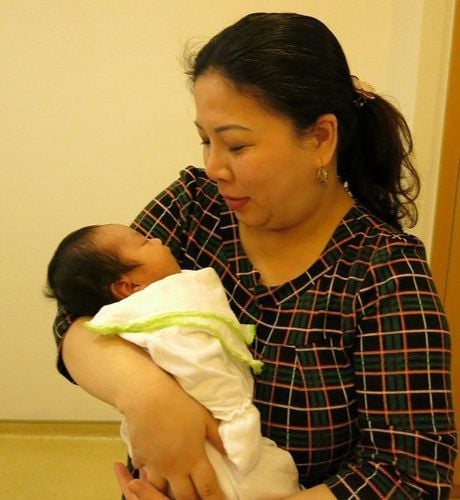
Despite having a cleft palate, the infant weighed 3.4 kg when she was discharged from the hospital, in addition to having a steady heart rate and well-ventilated lungs. This is the same as a full-term infant in terms of development. The infant has been eating well with a spoon and is now working on bottle feeding and a particular position for cleft palate babies. When the infant is around 9 months old, he will be evaluated again to see if the cleft palate can be repaired.
"The RVS virus is a respiratory syncytial virus, which is the most prevalent cause of respiratory infections in children under the age of two," Dr. Thai explained. If this virus infection causes bronchiolitis, pneumonia, or deformities in infants under the age of three months, 93 percent of RSV infections result in significant consequences needing critical care. In our country, there is no vaccine for this condition. Coughing, wheezing, and even asthma are common symptoms in children infected with RSV. It is now winter-spring - the time when respiratory syncytial virus and other respiratory viruses thrive. As a result, if a kid under the age of three months exhibits signs of wheezing and poor feeding, parents should not self-treat and should take the infant to the hospital as soon as possible. Because when children are infected with viruses, the condition can spread quickly, resulting in acute respiratory failure that is difficult to treat and recover later.”
Please dial HOTLINE for more information or register for an appointment HERE. Download MyVinmec app to make appointments faster and to manage your bookings easily.
